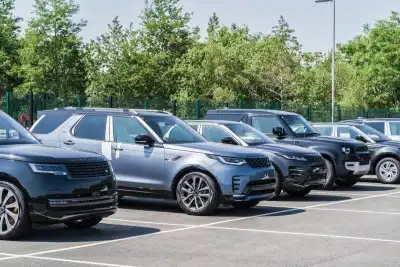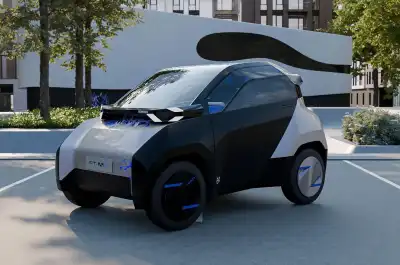
The Chancellor has announced a substantial increase in the first year’s Vehicle Excise Duty (VED), commonly known as road tax, for many new vehicle models. This measure aims to widen the gap between fully electric vehicles (EVs) and traditional internal combustion engine (ICE) vehicles.
Effective April 2025, the standard road tax will rise in line with inflation. However, for buyers of cars emitting more than 75g of CO2 per kilometer, the first-year road tax will significantly increase. From this threshold and across all higher CO2 emission bands, rates will double, with the government projecting an additional £400 million in revenue for the treasury next year and £1.7 billion by the end of the decade.
Luxury and high-performance vehicles, such as the V8 petrol Range Rover, will see dramatic increases, with first-year road tax rising from £2,745 to an eye-watering £5,490. Even smaller vehicles, like the 1.2-litre hybrid Vauxhall Corsa emitting 102g/km of CO2, will experience a notable hike, with the first-year rate nearly doubling from £195 to almost £400.
Furthermore, the rates for cars emitting up to 50g/km and 75g/km of CO2 will also rise significantly, from £10 and £30 to £110 and £130, respectively. Additionally, starting in April, electric vehicles will no longer benefit from a zero rate for VED, with an annual charge of £10 being introduced.
While the government has yet to revise the supplement on VED for vehicles costing over £40,000, there are indications that adjustments may be considered to make high-end electric models more attractive. The budget document states “The government recognises the disproportionate impact of the current VED Expensive Car Supplement threshold for those purchasing zero-emission cars and will consider raising the threshold for zero-emission cars only at a future fiscal event, to make it easier to buy electric cars.”
In the realm of company cars, the government is maintaining favourable Benefit-in-Kind rates for electric vehicles, which are a significant driver for EV adoption in the UK. However, hybrid vehicles will face increased tax rates, aligning them more closely with those of ICE vehicles. The Chancellor has outlined a framework where rates for zero-emission vehicles will rise by 2% annually from 2028 to 2029, reaching 9%. BiK rates for hybrids are set to exceed 19% by 2029, more than doubling current levels.
Lastly, the government plans to address the perceived loophole regarding luxury 4x4 double cab pickups. Starting in April, these vehicles will be treated similarly to cars for capital allowances and Benefit-in-Kind purposes, although existing vehicle owners will have transitional arrangements, allowing them to be taxed at current rates until 2029.
What are your thoughts on these budget changes? Share your comments below.




